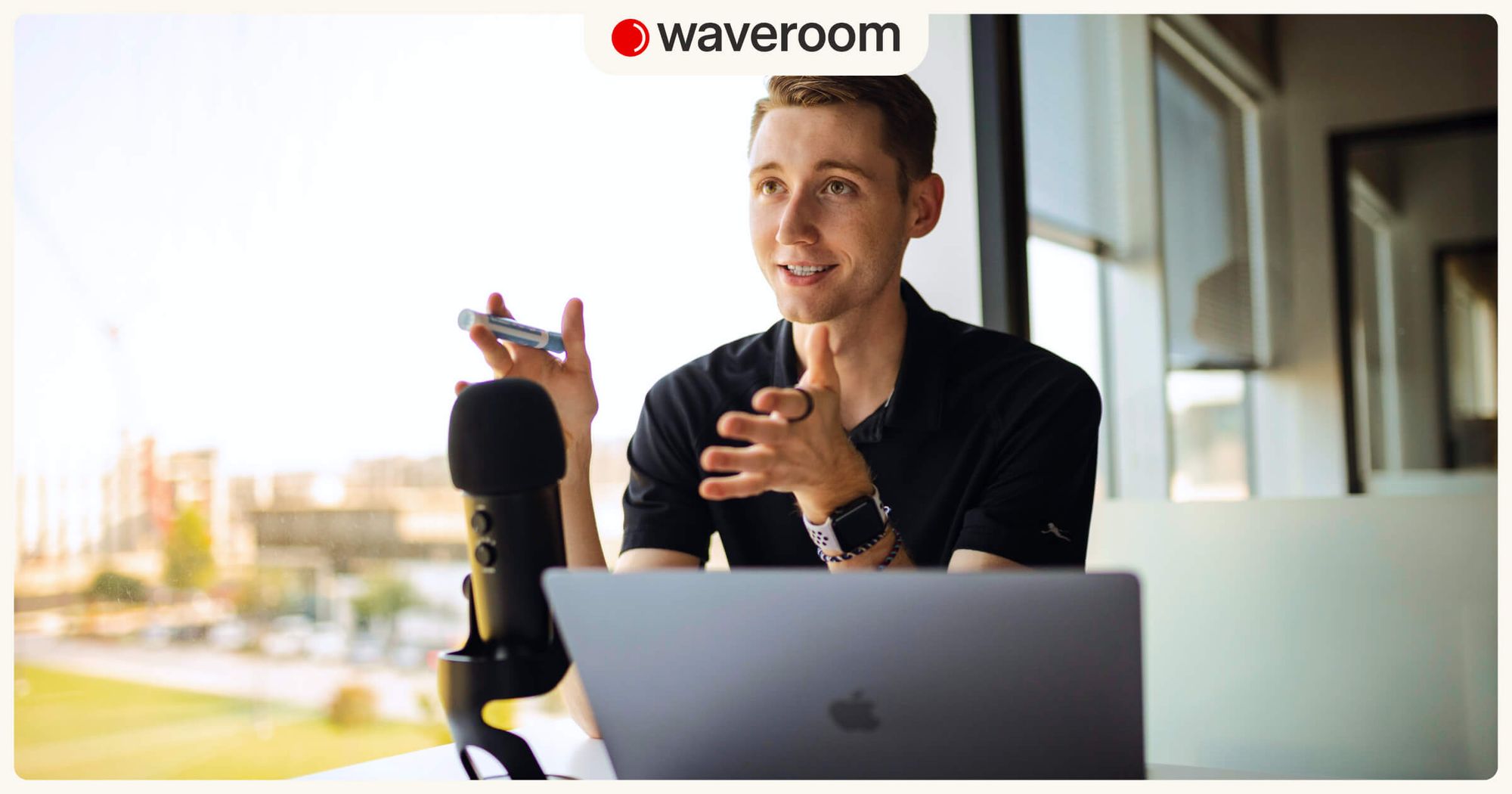The Ultimate Guide to Solo Podcasting: From Concept to Success
Explore the process of starting and running a successful solo podcast.

Podcasting has become a powerful medium for connecting with audiences and sharing ideas. While many podcasts feature multiple hosts or guest speakers, solo podcasts offer a unique opportunity for individuals to showcase their expertise and creativity.
In this guide, we will explore the process of starting and running a successful solo podcast. From choosing a topic and format to recording, editing, and publishing, we will cover all the essential steps to help you stand out in the podcasting world.
Understanding Solo Podcasting
What is a Solo Podcast?
A solo podcast is a type of podcast where there is only one host. Unlike other podcasts with multiple hosts or guest speakers, solo podcasts primarily feature the host delivering all the content. While guests or interviewees can be included in special episodes, the focus remains on the host's insights, opinions, and storytelling abilities.
Benefits of Solo Podcasts
Solo podcasts offer several advantages for aspiring podcasters. Firstly, hosting a solo podcast provides complete control over the content and creative decisions. The host has the freedom to explore topics they are passionate about and tailor the podcast to their unique style. Additionally, solo podcasts offer flexibility in terms of recording schedules, as there is no need to coordinate with co-hosts or guests. This allows for greater efficiency and convenience in podcast production.
Target Audience for Solo Podcasts
When creating a solo podcast, it is crucial to identify and understand your target audience. Consider the demographics, interests, and preferences of the audience you aim to reach. You can build a loyal following and increase engagement by tailoring your content to their needs and expectations. Conducting market research, analyzing similar podcasts, and engaging with potential listeners can provide valuable insights into your target audience.
Preparing for Your Solo Podcast
Choosing a Topic and Format
Selecting a compelling topic is the first step in creating a successful solo podcast. Consider your expertise, interests, and what will resonate with your target audience. Brainstorm ideas, conduct research, and choose a niche that sets you apart from other podcasts. Additionally, determine the format that best suits your content, whether it's monologues, interviews, educational episodes, or storytelling.
Planning Your Podcast Content
Effective planning is crucial for delivering high-quality podcast episodes. Develop an outline for each episode, including key points, segments, and transitions. This will help you stay focused, organized, and deliver engaging content to your listeners. Consider incorporating regular features, audience interaction, and a clear structure to maintain consistency and captivate your audience.
Recording Equipment and Software
Investing in the right recording equipment and software is essential for producing professional-quality audio for your solo podcast. While you don't need an elaborate setup, a good-quality microphone, headphones, and recording device are necessary. Research different options based on your budget and requirements. Additionally, choose reliable recording software that allows for easy editing and post-production.
Creating Your Solo Podcast
Recording Techniques and Tips
When it comes to recording your solo podcast, there are several techniques and tips to enhance your performance. Find a quiet and acoustically suitable space for recording to ensure clear audio quality. Experiment with microphone placement and test different voice modulation techniques to engage your listeners. Additionally, practice speaking naturally and confidently to establish a connection with your audience.
Editing and Enhancing Your Podcast
Editing plays a vital role in refining the quality and professionalism of your solo podcast. Remove any background noise, awkward pauses, or repetitive sections in the editing process. Enhance the audio with sound effects, music, and transitions for a polished listening experience. Utilize editing software to fine-tune the audio levels and ensure a seamless flow throughout the episode.
Publishing and Promoting Your Podcast
Once your solo podcast is ready, it's time to publish and promote it to reach a wider audience. Choose a reliable podcast hosting platform that allows for easy distribution to major podcast directories. Craft engaging episode titles, descriptions, and cover artwork that capture the attention of potential listeners. Promote your podcast through social media, your website, and collaborations with other podcasters to increase visibility and attract new subscribers.
Sustaining Your Solo Podcast
Consistency and Frequency
Consistency is key to building and retaining an audience for your solo podcast. Establish a regular publishing schedule that suits your production capabilities and aligns with your audience's expectations. Whether it's weekly, bi-weekly, or monthly, maintaining a consistent release pattern demonstrates professionalism and reliability to your listeners.
Engaging with Your Audience
Interacting with your audience is crucial for building a loyal and engaged community around your solo podcast. Encourage feedback, comments, and questions from your listeners through social media, email, or dedicated podcasting platforms. Incorporate listener suggestions and address their concerns to foster a sense of connection and ownership within your audience.
Evolving Your Solo Podcast
As your solo podcast progresses, it's essential to continually evolve and adapt to keep your content fresh and engaging. Seek feedback from your audience, analyze podcast analytics, and stay updated on industry trends to identify areas for improvement. Experiment with new formats, guests, or topics to expand your podcast's reach and appeal to a broader audience.
Starting and running a successful solo podcast requires careful planning, dedication, and a deep understanding of your target audience. By following the steps outlined in this guide, you can create a unique and engaging solo podcast that resonates with listeners. Remember to stay true to your passion, continuously refine your content, and embrace the power of solo podcasting to connect with a global audience.
Now, it's time to embark on your solo podcasting journey and unleash your creativity through the power of audio storytelling. Happy podcasting!
